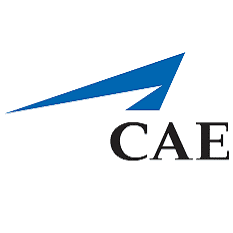Canadian Travel Stocks – March Rebound on the Horizon?
Canadian travel stocks have taken a beating over the last few years. If you’ve been an investor in those types of Canadian stocks expecting a quick rebound, you’ve likely been disappointed.
However, if you’re looking for some of the top travel stocks in anticipation of a further rebound, we’ll drop some options for you below. Make no mistake; these travel companies are not just trades.
These are the real deal, the kinds of companies an investor can hold for a long time. So, let’s take a closer look at these Canadian tourism stocks, with a special bonus thrown in.
The top Canadian travel stocks to buy today
- Alimentation Couche-Tard (TSE:ATD.B)
- Onex (TSX:ONEX)
- CAE Inc (TSX:CAE)
Alimentation Couche-Tard (TSE:ATD.B)

Alimentation Couche-Tard (TSE:ATD.B) is not only one of the largest companies in the country and what I consider to be a blue-chip stock here in Canada, but it is also an underrated and overlooked company when it comes to travel stocks here in Canada.
Couche-Tard is one of the largest convenience store operators in the world, operating under brands like Couche-Tard and Circle K.
The company owns more than 14,000 stores around the world, operating in North America, Europe, and Asia. In addition, it also has more than 2,000 stores in places like the Middle East and Africa under licensing agreements.
Although the company sells things like cigarettes and junk food, most of its revenue comes from fuel sales, making it a perfect travel-related option.
Couche-Tard proved to be capable of providing solid earnings growth despite global shutdowns. During the pandemic, the company kept revenue relatively flat while growing earnings, despite many people in North America and Europe driving a lot less than before.
If Couche-Tard can drive bottom-line growth during the midst of a worldwide shutdown, then it should be able to easily grow earnings now that things are back to normal.
Analysts are expecting double-digit growth for Couche-Tard in 2024. In addition, the company recently came out with a five-year plan that projects it’ll double adjusted EBITDA from 2023 to 2028.
This may prove to be a lofty target, but we must remember the company had a similar goal from 2018 to 2023 and it managed to accomplish it.
As I write this, Couche-Tard shares are close to an all-time high. But don’t let that discourage you. It’s earnings growth that matters, and the company looks poised to deliver on that front.
The company does pay dividends, but the yield is relatively small. However, don’t let this deter you from investing in Couche-Tard for dividend growth, as the company is one of the fastest dividend growers in Canada.
Over the last decade, the company has grown the dividend by more than 600%, with a more than tenfold increase to its share price.
Many Couche-Tard bears state the emergence of EV vehicles is going to kill the fuel business. However, Couche-Tard has been on top of this for quite some time. Over the last while, it has been testing charging stations in Norway and has begun to roll them out in North America.
Overall, this is just a blue-chip Canadian travel stock that is undoubtedly set to benefit from a complete economic reopening.
Speaking of exposure to different economies, are you interested in learning about how Canadians can buy US-listed stocks in Canadian dollars? Check out our piece on Canadian Depository Receipts.
Onex (TSX:ONEX)

You may remember when it was possible to invest in Westjet. You must buy Onex (TSE:ONEX) to get that exposure now. Why? Onex purchased Westjet in late 2019 in a friendly deal to absorb the company into its outstanding portfolio.
Onex Corporation is a private equity investor and asset management firm. The company is a significant asset manager with $50B+ assets and over 39 years of operations.
Its assets contain or, at one point, have contained some well-known names such as Allison Transmission, Westjet, Tropicana Resorts, Spirit Aerosystems, Pure Canadian Gaming, Pinnacle Renewable Energy, and more.
Investing in an asset manager like Onex can be confusing. However, the one thing that is certain is a sizable number of businesses inside of Onex’s portfolio benefitted from a recovery in the global economy and the easement of COVID-19 restrictions.
The company does pay a dividend, but it is a non-factor. Its yield is sub 1%, and its payout ratio is around 9.5% of cash flow. An investment in Onex is one that investors seeking capital appreciation should consider, not for passive income.
Since reaching a high of nearly $100 per share in the latter part of 2021, Onex shares have been weak. As of press time, the stock is down some 25% from that peak, although it has recovered somewhat from lows set earlier in 2023.
Management is actively taking steps to improve the stock price, including expanding its private equity asset management business and repurchasing what it deems are undervalued shares.
One thing is for certain — from a price-to-book value ratio, shares are cheap. Onex shares currently trade at just 0.54x book value. Asset managers have taken a big hit in terms of valuation because of rising interest rates as of late. However, this is likely a short-term headwind.
We’ve gotten away from Onex’s “travel” part a bit here. The company’s $5B purchase of Westjet airline couldn’t have come at a worse time. However, Westjet has proven to be one of the most efficient airlines in the country and should help Onex in its post-pandemic recovery.
CAE Inc (TSX:CAE)

CAE Inc (TSE:CAE) is a unique company for travel stocks in Canada. That is because although CAE doesn’t directly provide the means to travel, it is impacted significantly by the pace of global travel.
This company delivers training for the civil aviation, defense, security and healthcare markets.
The company also generates revenue from supplying aviation personnel on lease. CAE stands to benefit the more people that are flying and the more planes in the air.
The company generates the most significant portion of its revenue (around one-third) from the United States but operates in many countries.
Before the pandemic, CAE was a pillar of consistency. The company had provided consistent earnings and revenue growth for the better part of a decade. It was a strong dividend payer and Canadian Dividend Aristocrat.
However, when the global pandemic wreaked havoc on the airline and healthcare industry, annual revenue dipped by more than 20% on a year-over-year basis, and earnings fell by more than 70%. CAE also stopped paying its dividend and has yet to reinstate its quarterly payout.
Shares rebounded nicely from pandemic lows, buoyed by the company’s resurgent profitability. The bottom line went from a slight profit in fiscal 2021 to earnings of $0.70 per share in fiscal 2023. Analysts expect earnings to continue growing in 2024 and 2025, too.
If you’ve got some long-term conviction, there shouldn’t be much doubt in a rebound with CAE. The only question will be the length of time. This is a unique airline stock, one that should rebound in the event of more passengers getting back in the air.
Bonus pick: Invesco Leisure and Entertainment ETF (NYSE:PEJ)
One of the problems with the Canadian market is we don’t have many high-quality stocks from the tourism industry. The best travel stocks trade in the United States.
Part of the reason is so many American travel companies have expanded into Canada. Several U.S. airlines regularly fly in and out of Canada. Many of our hotels operate under U.S. brands. And a lot of our top restaurant chains originally came from the United States.
In addition, most of the world’s top travel stocks trade in the United States, on the New York and NASDAQ stock exchanges. These are excellent long-term companies, stocks that would look good in most every portfolio.
Therefore, it makes sense for Canadian investors to look stateside for their travel investment exposure.
The easy way to get this type of investment in your portfolio is to simply buy an exchange-traded fund that covers the industry. There are several to choose from, with most having too much airline exposure for this analyst to be comfortable with.
The Invesco Leisure and Entertainment ETF (NYSE:PEJ) is different. It has a diverse portfolio of many different travel stocks. More than half the ETF’s portfolio is in lodging and restaurant stocks, with an additional 30% in travel-related tech stocks. Airlines make up a mere 15% of assets under management.
Prominent names in the ETF include Booking Holdings (NASDAQ:BKNG), Expedia Group (NASDAQ:EXPE), AirBnB (NASDAQ:ABNB), and Marriott International (NYSE:MAR). It also holds shares of Walt Disney (NYSE:DIS) and its largest airline holding is Delta Air Lines (NYSE:DAL).
This ETF only pays a small dividend, which is well under 1% per year, as most of its holdings aren’t known for paying dividends. Management fees are a little higher than you’ll see on a lot of ETFs, checking in at 0.58%, although this is relatively common for specialized ETFs. In other words, this is a growth ETF, not an income play.
Why travel stocks didn’t work during the pandemic
Whether cruise lines, casinos, AirBNB, vacations, or leisure travel, the COVID-19 pandemic wreaked havoc on the global economy for much longer than many anticipated, and a speculative bet on travel stocks simply did not pay off.
Cancellations were rampant, companies were swimming in debt, and many Canadian and US airline companies such as Air Canada, American Airlines, Southwest Airlines, Delta, and United Airlines were impacted extensively.
Why travel stocks could be beneficial coming out of the pandemic
Now that we’re entering a post-pandemic environment, things are looking much more favourable for travel stocks. However, despite the tailwind of COVID-19 travel restrictions going away and a stronger than expected economy witnessed in 2023, many of Canada’s travel stocks haven’t performed exceptionally well.
Air Canada, for instance, saw shares sell-off significantly during the latter part of 2023, falling more than 50% compared to the stock’s 2021 highs.
Still, travel has several long-term tailwinds going for it. Many Canadians — especially wealthy baby boomers — list travel as one expense they’re not likely to cut out anytime soon.
A rapidly increasing middle class in many developing countries is also helpful since Canada is a top tourist destination. And our nation’s large immigrant population is also a long-term positive for the industry. After all, these folks usually feel the desire to visit their former home every so often.
Why I didn’t include Air Canada stock on this list
Many investors are not fans of the airline industry, pointing out that the industry suffers from ample competition, just about zero brand loyalty, high fixed costs, unionized employees who are often not willing to compromise during contract negotiations, and various other drawbacks.
This is why we don’t have Air Canada stock on this list. This doesn’t necessarily make Air Canada stock a bad investment. Many investors have made money, and the stock could easily rebound again. But we view it more as a trading stock rather than one an investor would own over the long-term.
Besides, the company is being forced to expand flights into both Europe and Asia-Pacific regions for growth, which puts it up against much stiffer competition than the comfortable oligarchy it has enjoyed in Canada.
